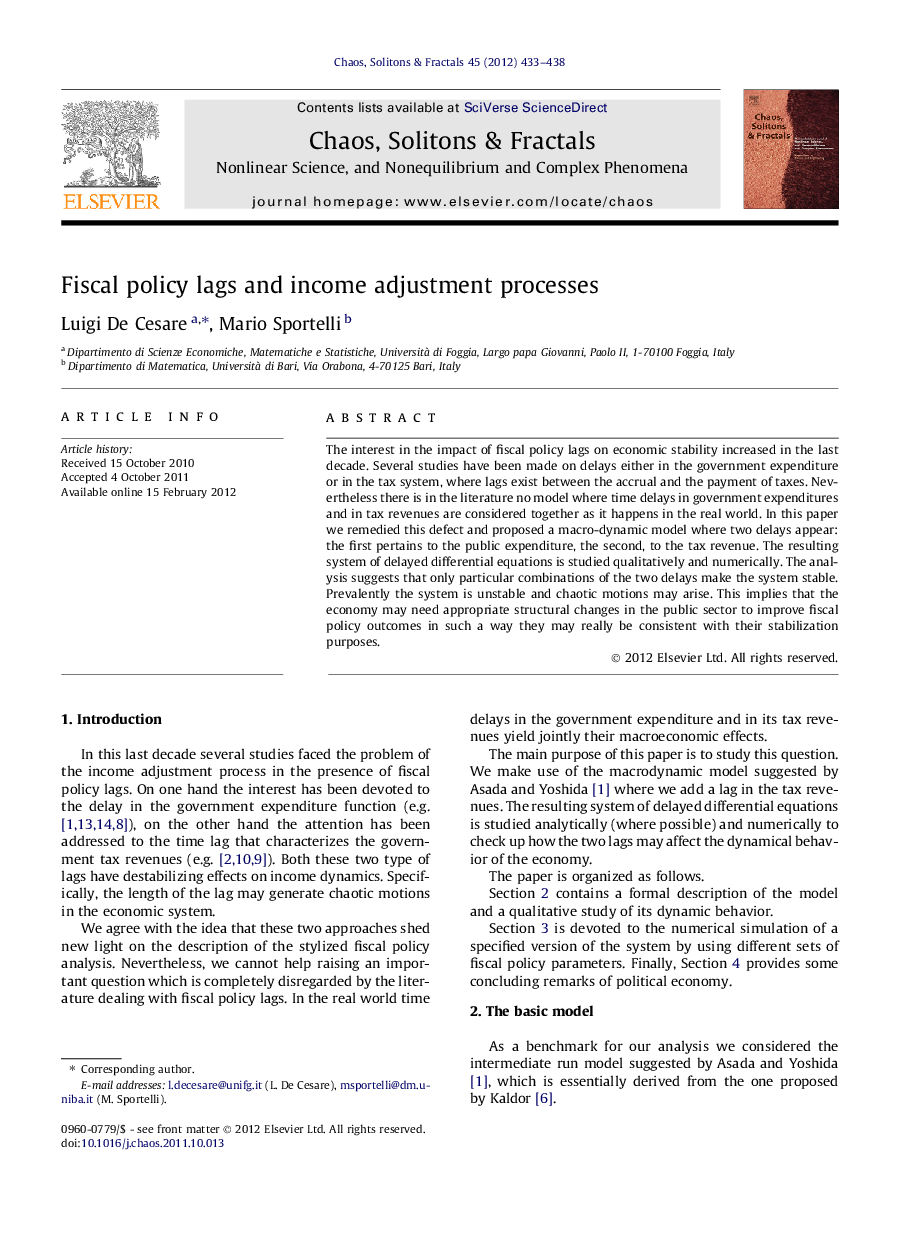| کد مقاله | کد نشریه | سال انتشار | مقاله انگلیسی | نسخه تمام متن |
|---|---|---|---|---|
| 1895878 | 1044397 | 2012 | 6 صفحه PDF | دانلود رایگان |

The interest in the impact of fiscal policy lags on economic stability increased in the last decade. Several studies have been made on delays either in the government expenditure or in the tax system, where lags exist between the accrual and the payment of taxes. Nevertheless there is in the literature no model where time delays in government expenditures and in tax revenues are considered together as it happens in the real world. In this paper we remedied this defect and proposed a macro-dynamic model where two delays appear: the first pertains to the public expenditure, the second, to the tax revenue. The resulting system of delayed differential equations is studied qualitatively and numerically. The analysis suggests that only particular combinations of the two delays make the system stable. Prevalently the system is unstable and chaotic motions may arise. This implies that the economy may need appropriate structural changes in the public sector to improve fiscal policy outcomes in such a way they may really be consistent with their stabilization purposes.
► There are delays either in the government expenditure or in the tax system.
► Both delays affect fiscal policy outcomes.
► The system of differential equations with two delays may be chaotic.
► Fiscal policy outcomes might be inconsistent with their stabilization purposes.
Journal: Chaos, Solitons & Fractals - Volume 45, Issue 4, April 2012, Pages 433–438